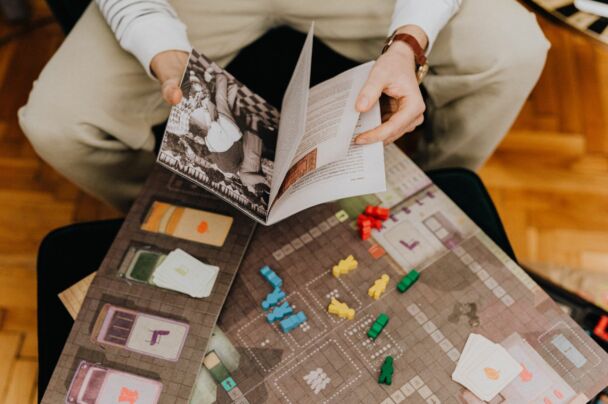Description
Student motivation is becoming increasingly challenging in contemporary education.
Technology has created an instant gratification culture, where students are accustomed to receiving immediate feedback and rewards. Moreover, students often do not perceive how proposed classroom activities are relevant to their lives and goals, or can connect with their interests.
How to approach such an issue, which we may call the challenge of motivation?
Game-Based Learning (GBL) and Game Design are powerful tools for engaging students. After all, who doesn’t like playing?
By situating learning in playing activities, Game-Based Learning promotes active learning, helps learners acquire important soft skills, and personalizes the learning experience.
Would you like to learn more about how to introduce these methodologies in your classroom?
The course will teach participants to apply the principles of Game-Based Learning and Game Design in their school setting to improve student motivation and engagement in any curricular subject.
Participants will understand the difference between Game-Based Learning, Gamification, and Game Design, and when it is more appropriate to use each methodology. Accordingly, they will learn to use games in the classroom to promote students’ skills and knowledge and on a particular domain or curricular subject.
Moreover, participants will discover how to gamify learning with simpler (e.g., quizzes) and more complicated (e.g., escape rooms) quests. In particular, participants will get familiar with Inquiry-Based Learning (IBL), a teaching method where students are encouraged to find their own answers to complex questions they raised by following a pre-planned procedure for information gathering and analysis.
The instructor will illustrate the principles of IBL and show participants off to use this method to have students solve or plan escape rooms/treasure hunts on school curricular subjects.
Participants will also learn to run short game jams, that is, workshops lasting between 1 and 3 hours where their students will completely design a card or board game on an assigned school subject.
Game jams are a great tool to make students familiarize with the content and themes proposed for the games while collaborating with each other and developing an engaging project. Participants will be introduced to the different steps of game design (Planning, Production, Testing, Revising), and gain practical experience by creating and playing with their own prototypes.
By the end of the course, participants will be able to incorporate games into their teaching practice to create more effective and enjoyable learning environments for their students. Moreover, they will feel confident in helping students develop educational games.
What is included
Learning outcomes
The course will help the participants to:
- Understand the difference between Game-Based Learning, Game Design, and Gamification;
- Focus on the aspects of Game-Based Learning closer to their preferences;
- Use board games with students to develop their soft skills;
- Run short Game Jams (i.e., game design sessions);
- Use Inquiry-Based Learning to structure escape rooms/treasure hunts;
- Promote the acquisition of curricular content through game-based activities;
- Debrief gaming sessions in the classroom.
Tentative schedule
Day 1 – Introduction to the course
- Introduction to the course, the school, and the external week activities;
- Icebreaker activities;
- Presentations of the participants’ schools.
Why Play at School?
- GBL, gamification, and game design in education;
- Kinds of players: Differences in motivation for different people;
- Learning by play: content, soft skills, and attitudes;
- Activity: Card games for the classroom on cooperation and storytelling (1 h).
Day 2 – Game Design
- Game design, re-theming, and modding;
- Activity: Playing simple board games for re-theming and modding;
- What are Game Jams? Explanation of the methodology;
- Activity: Designing a complete game in a Game Jam session (Introduction to the principles of game design, design session, and share out event, 2 h).
Day 3 – Gamification (escape rooms/treasure hunts)
- How to debrief play in the classroom;
- Testing problem-solving with riddles and enigmas;
- Inquiry-Based Learning: Explanation of the methodology;
- Quizzes, and writing effective and engaging questions;
- Activity: How to create an escape room/treasure hunt (physical/digital, 2h).
Day 4 – Playing with stories (interactive fiction and gamebooks)
- The importance of stories in game design;
- The structure of stories (setting, characters, plot)
- Activity: Playing by reading and writing interactive fiction (2 h).
Day 5 – Final game jam
- Activity: Final game creation;
- Playing others’ games and reports;
- Feedback and discussion.
Day 6 – Course closure and cultural activities
- Course evaluation: round-up of acquired competencies, feedback, and discussion.
- Awarding of the course Certificate of Attendance.
- Excursion and other external cultural activities.








